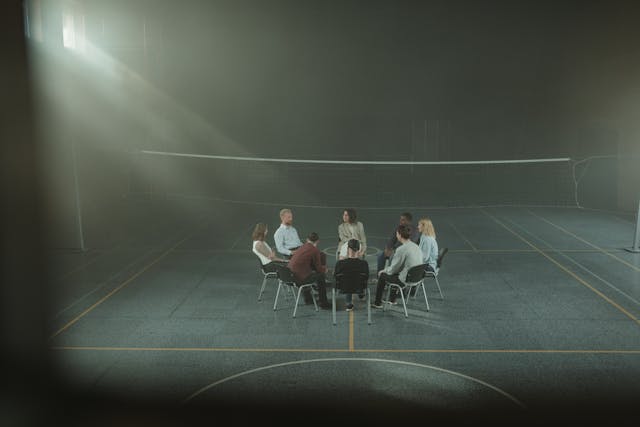Community Support Network: Building Resilience Together

Community support networks are like a slow pause button to the fast-paced world we currently live in. These support networks can ease that feeling of being alone or overwhelmed with challenges; they offer a helping hand to everyone who needs it. They are characteristically made up of friends, co-workers, neighbours, and organizations in our community. Community support networks play an important role in enhancing our mental health and helping build resilience. This article will break down the works of these support networks and how they help with building mental health resilience.
Understanding Community Support Networks
What Are Community Support Networks?
Community support networks are initiatives formed by a group of people who come together to help each other out. They mainly offer three types of support:
- Practical Support: Helping people with tasks and gathering resources.
- Emotional Support: Give a listening ear and encouragement when you are feeling down.
- Social Support: They organize events where people can socialize, network, and have fun.
They are like pillars in society; everyone plays an important role in keeping tabs on each other, thus building a strong and healthy community.
Why They Matter for Mental Health
These support networks are important for managing mental health due to the roles they play in our daily lives. Imagine a scenario where you are having a bad day, and there is a place where you can get a listening ear; it helps you find relief faster than keeping it to yourself. Sharing your experience with someone who can relate to it also gives a warm feeling of not being alone. According to some research, social support helps in stress reduction, enhances general well-being, and reduces loneliness.
Key Community-Based Initiatives
Local Support Groups
Local support groups are easily accessible, making them one of the most common types of community support groups. Each group is usually focused on handling specific issues, such as addiction, depression, and grief. Local support groups are safe spaces where people can express their feelings and share their challenges without the fear of being judged. It is basically a friendly circle where freedom of expression is practiced.
Peer Counseling Programs
Peer counseling programs are a more professional version of local support groups. They have trained professionals who have volunteered to help people currently facing challenges they have experienced in the past. This program should not be confused with therapy; they are focused on giving opinions and encouragement based on personal experiences.
Workshops and Training Session
Mental health workshops focus on teaching stress management, strategies for coping, and mindfulness practices. This makes them a surefire way to build mental health resilience. Attending such training sessions will equip individuals with the necessary skills for managing the topsy-turvy moments in their lives. It is also a good place to meet new people with the same ideas.
How to Get Involved
Finding Local Resources
Finding the right support group is an important step to getting involved. The best way to start is by checking local community centers, visiting local libraries, and joining social media groups. Proper research can lead you to support groups and available workshops with a wealth of resources in your neighborhood.
Creating Your Own Initiative
Another way to get involved is to be a pioneer in a community initiative. If you look around and you can not find any to join, you can start a book club, support circle, or even a walk group, then put the word out there about its existence. Though it might start slow, with time, you will be amazed at how your little idea will turn into a huge success that supports the mental health of your community.
Success Stories
Case Study: A Local Support Group
85-year-old Ron lost his wife after 59 years of marriage. After this sad event, he misses her daily and often visits her grave, but this does not stop the overwhelming loneliness he is experiencing. He found a local support group in his community called CareNetwork and started attending their two weekly meetups. This helped him open up about his challenges and find the support he needed. Now Ron is back to actively writing and reciting poems, going out for lunch, and actively participating in other community initiatives. Read Ron’s full story here.
Case Study: Peer Counseling Impact
Sophie volunteered to do peer counseling to create open communication and support around mental health. Little did she know that this would also help her in a significant manner. She still had the trauma of her early stages of life when she had to deal with a severe eating disorder and had post-recovery questions that were left unanswered. However, peer counseling gave her the strength to find her identity and learn compassion towards others and herself. She now uses her experience as a story to others she counsels; to inspire them to find their identities. Read her story here.
Conclusion
Community support groups are helpful resources for mental health. However, if properly utilized, you can also use them as lifelines that guide us as we travel through the journey of life. Working together is the best way to build resilience, create a sense of belonging, and help others find the path to a good mental state. Just like the success story shared by Sophie, we should note that by helping others, we can also find the support we need. Joining mental health workshops and training programs will also broaden our knowledge on the said topic, and it will allow us to meet people who share similar beliefs and challenges. The power of the internet should also be leveraged; social media is a global community, and we can easily find a lot of support groups, workshops, and other resources that can further build our mental health resilience. Finally, do not be scared to be the pioneer of community support groups; find an activity that is not active, create the time and venue, spread out the word to your neighbors, and watch it blossom into something beautiful in your community.

